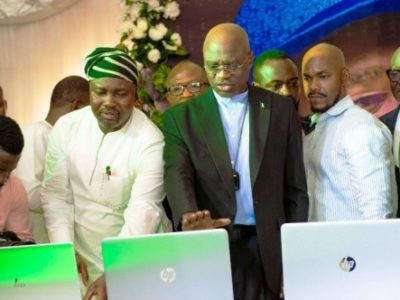South Korea Launches Global Talent Drive to Fuel AI, Biotech & Quantum Dominance. Fast-track visas, tax breaks, and R&D grants target African tech professionals in historic cultural-economic shift.
In a strategic bid to cement its position as a global tech powerhouse, South Korea has launched an ambitious initiative to attract skilled foreign workers, with a focused appeal to African tech talent.
RELATED: South Korea ready to partner with Africa on technology
Announced during a high-stakes plenary session of the Presidential Advisory Council on Science and Technology (PACST), the program offers streamlined visas, lucrative tax incentives, and access to cutting-edge R&D hubs to address critical workforce gaps in AI semiconductors, biotechnology, and quantum technology.
Key Incentives for Global Talent
- K-Tech Visa: Fast-track 5-year work permits with pathways to permanent residency for specialists in AI, biotech, and quantum fields.
- Tax Relief: 50% income tax reduction for the first three years, plus relocation grants up to $30,000.
- R&D Access: Priority placement at institutes like the Korea Advanced Institute of Science & Technology (KAIST) and Samsung Advanced Quantum Lab.
Target Sectors & 2030 Goals
- AI Semiconductors: Double production capacity to supply 20% of global demand by 2030.
- Biomanufacturing: Develop 10+ gene-editing therapies, aiming for a $50B bioeconomy.
- Quantum Technology: $500M investment in 2025 to build the world’s first nationwide quantum network.
Focus on African Talent
South Korea is actively partnering with African tech ecosystems to recruit expertise:
- Nairobi-Seoul AI Corridor: Collaboration with Kenya’s Konza Technopolis for AI talent exchanges.
- Nigeria Quantum Scholarships: Fully funded PhDs at KAIST for 50 Nigerian students annually.
- Job Fairs: Recruitment drives in South Africa, Ghana, and Rwanda starting Q4 2024.
Why Africa?
“Africa’s tech innovators are pivotal to our quantum leap. We’re not just recruiting workers—we’re inviting co-creators of Korea’s future,” said Park Sang-ook, PACST Chair.
- Demographic Dividend: Africa’s tech-savvy youth population (median age 19) aligns with Korea’s aging workforce (median age 44).
- Innovation Synergy: Rwanda’s drone tech and Nigeria’s fintech hubs offer cross-sector collaboration potential.
Cultural Integration
“This is a golden opportunity to contribute to groundbreaking projects while gaining unparalleled expertise. Korea’s incentives are transformative,” said Dr. Aisha Bello, Nigerian AI Researcher.
- K-Culture Integration Program: Free Korean language courses, housing subsidies, and cultural mentorship.
- Diversity Metrics: Aim to increase foreign residents from 4% to 15% by 2030, reshaping Korea’s homogeneous society.




























